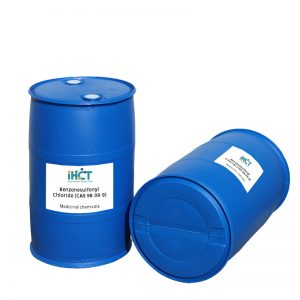Benzenesulfonyl Chloride vs Other Sulfonylating Agents in Pharma
- Addtime: 2025-05-29 / View: 550
When sourcing sulfonylating agents for pharmaceutical intermediates, how do you determine which compound offers the best balance of reactivity, stability, and regulatory compliance? Is benzenesulfonyl chloride truly the optimal choice compared to methanesulfonyl chloride or tosyl chloride? For procurement specialists and pharmaceutical chemists, understanding the subtle differences between these reagents is crucial to selecting the right material that will streamline synthesis, reduce risks, and meet stringent industry standards.
Key Differences Between Benzenesulfonyl Chloride, Methanesulfonyl Chloride, and Tosyl Chloride
Benzenesulfonyl chloride is an aromatic sulfonyl chloride that offers moderate reactivity and good selectivity, making it especially suitable for sulfonylation of aromatic amines and the formation of sulfonamides. Its aromatic structure provides stability under typical storage conditions and compatibility with many pharmaceutical synthesis protocols.
Methanesulfonyl chloride, by contrast, is an aliphatic sulfonyl chloride known for its high reactivity. This reagent reacts quickly with a broad range of nucleophiles, facilitating rapid synthesis steps. However, this high reactivity comes with challenges such as sensitivity to moisture and the need for stringent handling procedures. Methanesulfonyl chloride is often preferred when fast sulfonylation of aliphatic amines is required, but its relative instability demands careful process control.
Tosyl chloride is another aromatic sulfonyl chloride frequently used in pharmaceutical intermediate synthesis. It is commonly employed to introduce tosyl protecting groups or for specific intermediate transformations. Compared to benzenesulfonyl chloride, tosyl chloride contains a methyl group, which can add steric bulk and influence subsequent reaction pathways or biological activity. Tosyl chloride generally offers moderate reactivity and stability, making it a versatile reagent in multi-step syntheses.
Advantages and Ideal Applications of Each Sulfonylating Agent
Benzenesulfonyl chloride for pharmaceutical intermediates stands out due to its balanced profile of moderate reactivity, stability, and selectivity. It is particularly effective in sulfonamide formation and other reactions involving aromatic amines. This makes it a valuable reagent in the synthesis of many drug intermediates where precise modification is critical.
Methanesulfonyl chloride’s advantage lies in its fast reactivity, which can significantly reduce reaction times. However, this comes with the trade-off of increased handling risks and potential side reactions if not carefully controlled. It is best suited for aliphatic amine sulfonylation or when a highly reactive sulfonylating agent is necessary.
Tosyl chloride is prized for its ability to act as a protecting group and its moderate reactivity. It is widely used in complex organic syntheses and can be advantageous when steric effects are desired. However, the methyl group on tosyl chloride may interfere with certain reactions or affect the pharmacological properties of intermediates.
Regulatory and Production Considerations for Pharmaceutical Sulfonylating Agents
From a regulatory standpoint, benzenesulfonyl chloride for pharmaceutical intermediates typically meets strict industry requirements such as those set by REACH and the FDA. Its aromatic nature and well-documented safety profile simplify compliance and documentation processes.
Methanesulfonyl chloride, while effective, requires more rigorous safety protocols due to its high reactivity and sensitivity to moisture. This can increase operational complexity and regulatory scrutiny during manufacturing.
Tosyl chloride is generally accepted for pharmaceutical use but requires thorough quality control and documentation to ensure consistency and safety. Manufacturing-wise, benzenesulfonyl chloride offers a good balance of stability and purity, which facilitates long-term storage, transport, and consistent batch quality.
Selecting the Best Sulfonylating Agent for Your Needs

Choosing the right sulfonylating agent depends on factors such as desired reactivity, stability, regulatory compliance, and the specific synthetic pathway. Benzenesulfonyl chloride for pharmaceutical intermediates offers a balanced combination of moderate reactivity, stability, and regulatory acceptance, making it suitable for many drug synthesis applications. Methanesulfonyl chloride suits high-reactivity needs but demands careful handling, while tosyl chloride excels in protecting group chemistry and multi-step syntheses.
For those sourcing benzenesulfonyl chloride, reliability and quality are paramount. Inter Haven Chain Tech, as a leading global exporter of benzenesulfonyl chloride for pharmaceutical intermediates, is dedicated to providing consistently high-purity products that meet stringent industry standards. With years of experience in chemical export and a robust quality control system, Inter Haven Chain Tech ensures timely supply and technical support to pharmaceutical manufacturers worldwide, helping them maintain smooth production and regulatory compliance.






